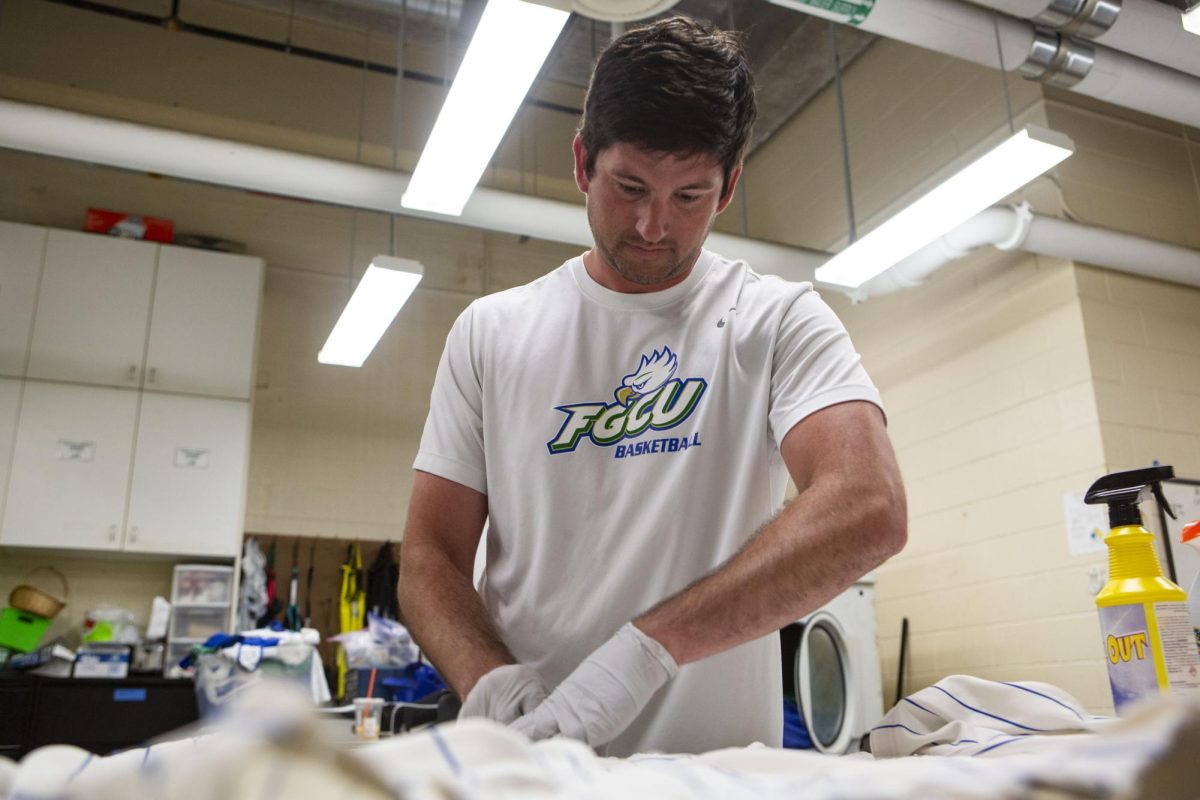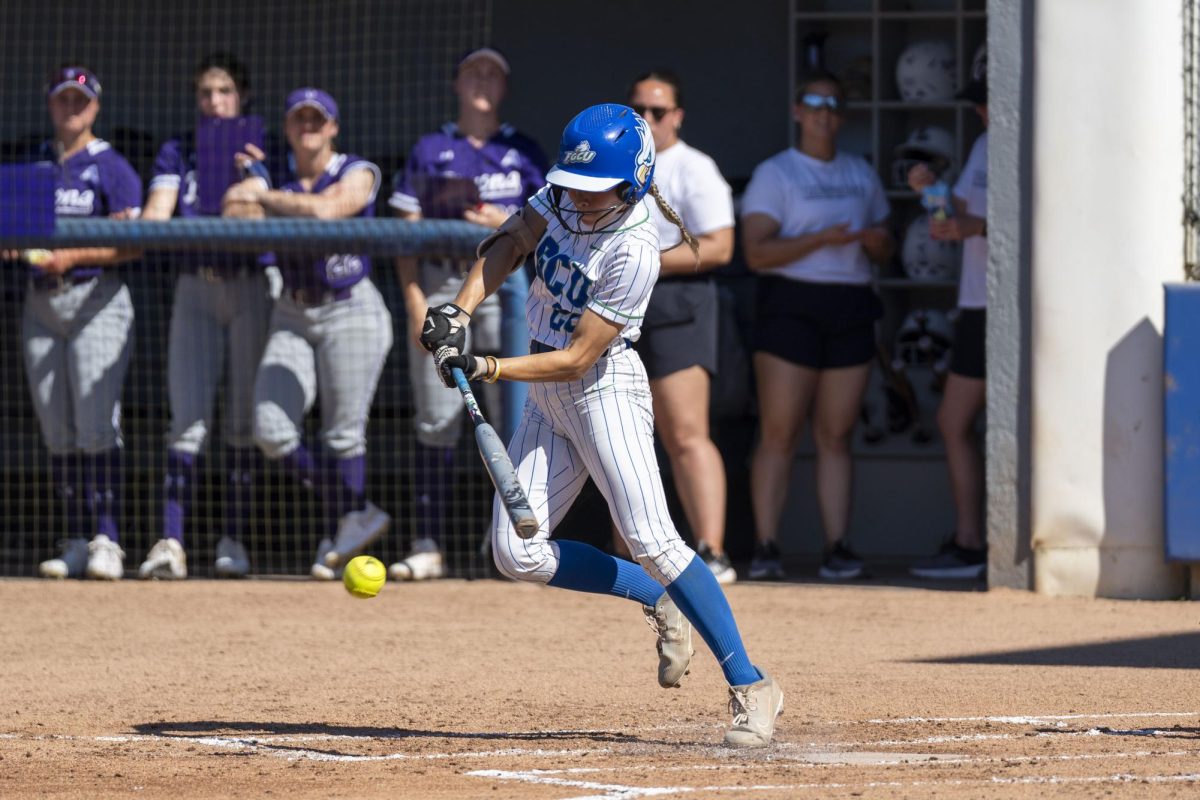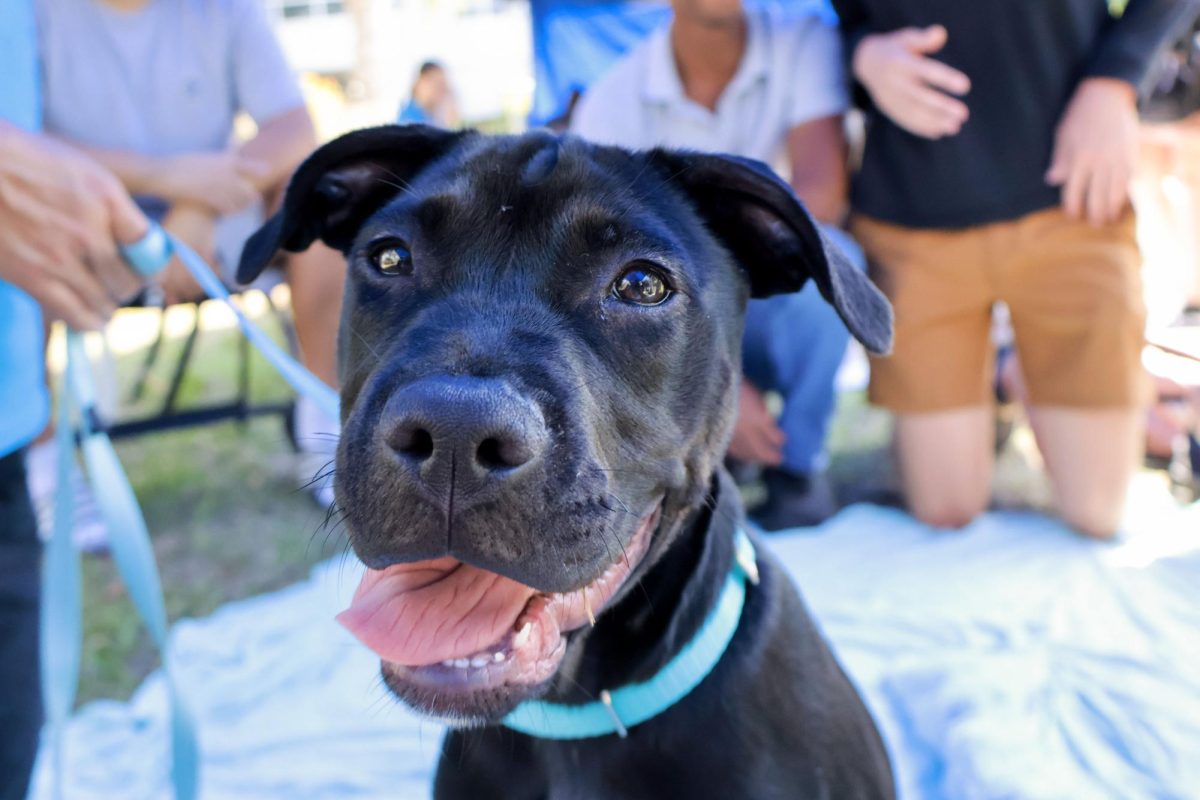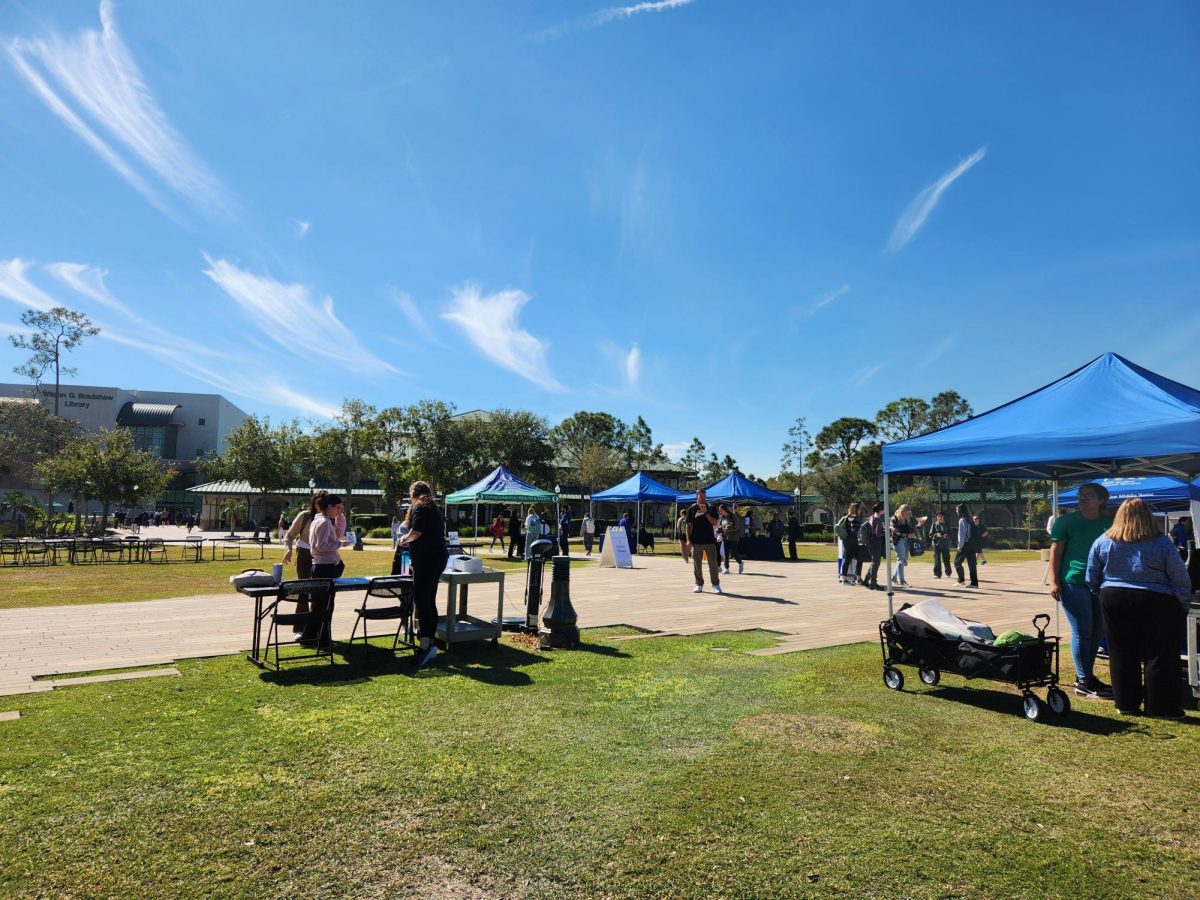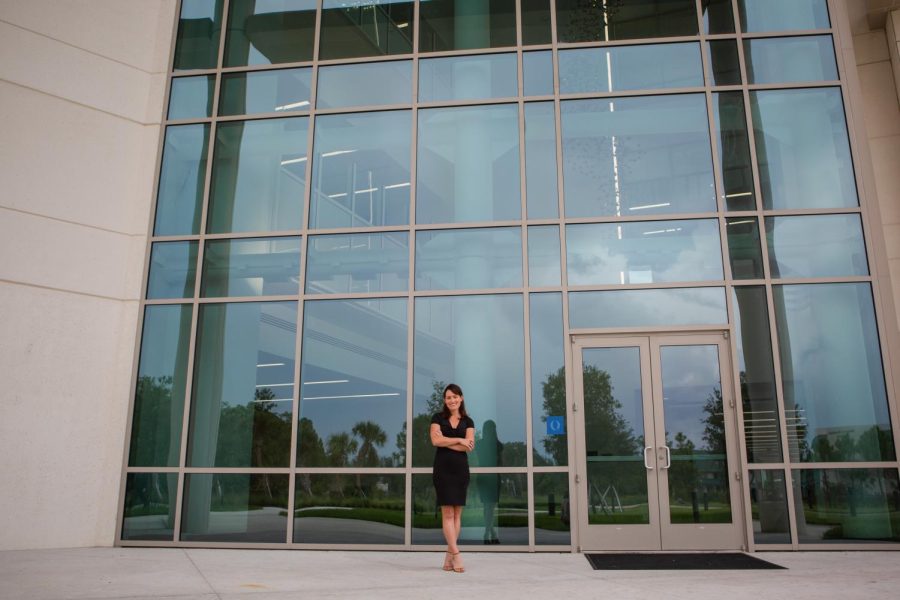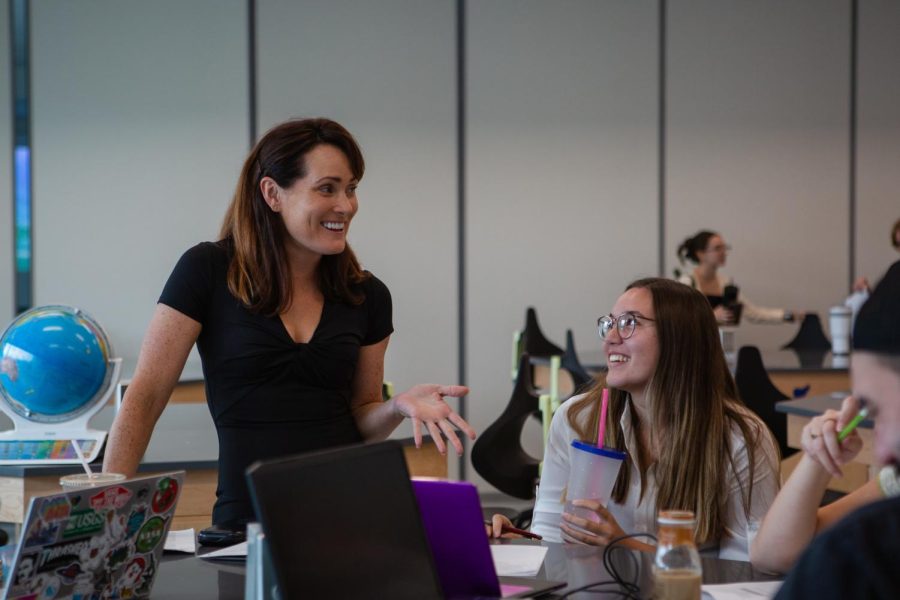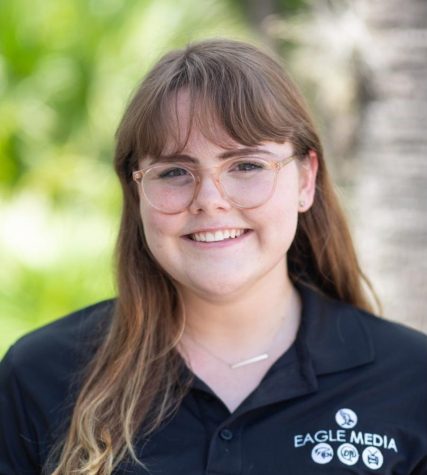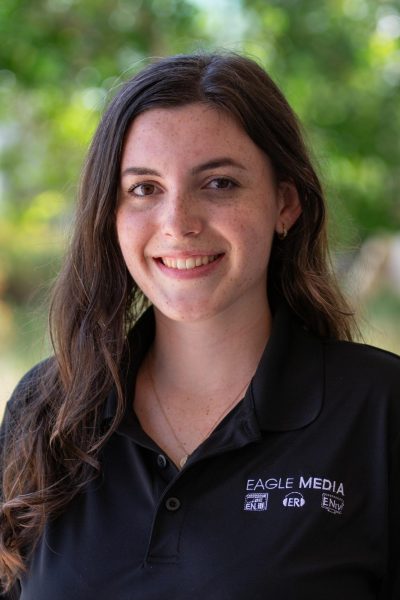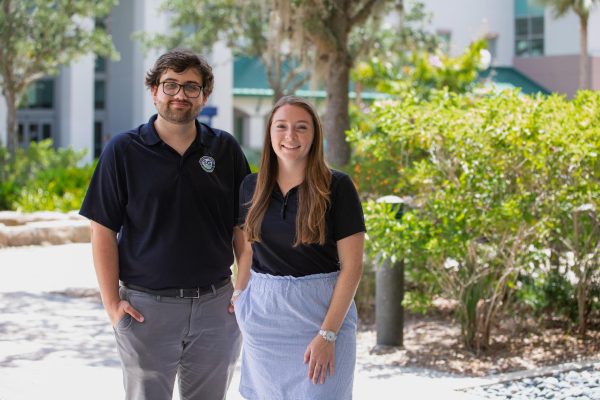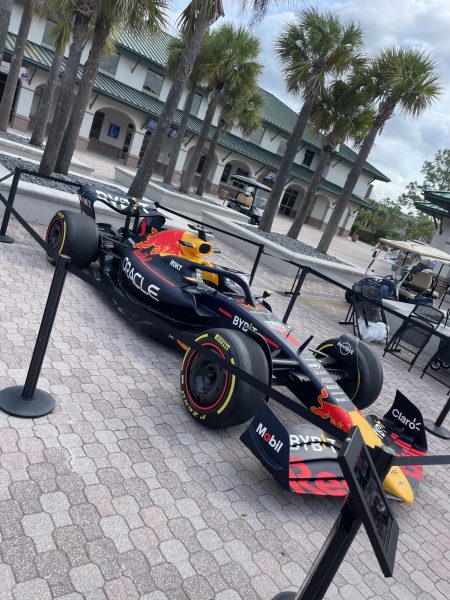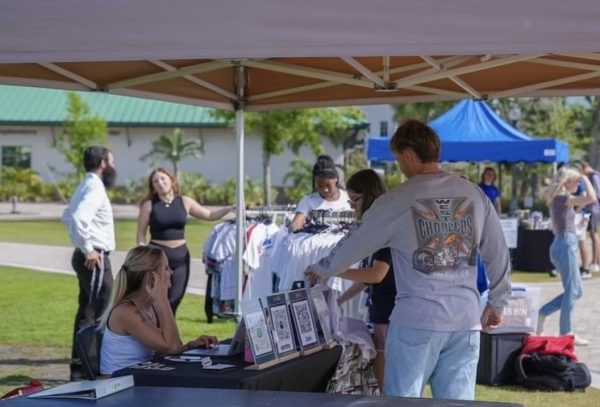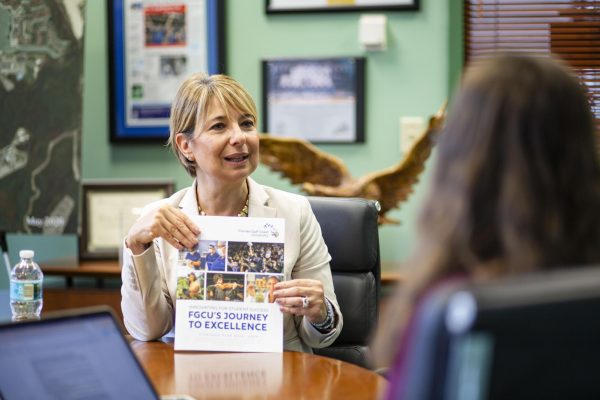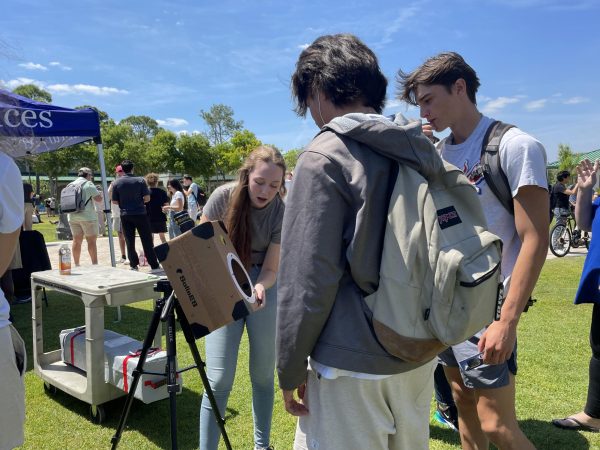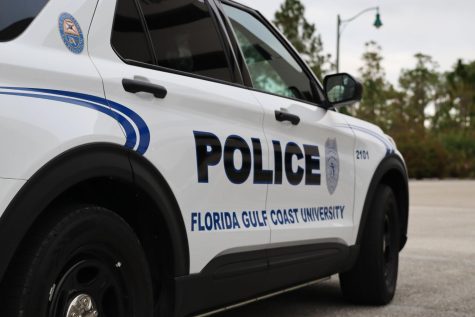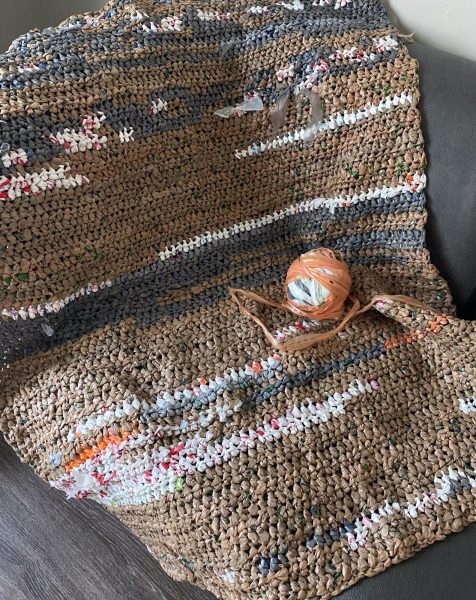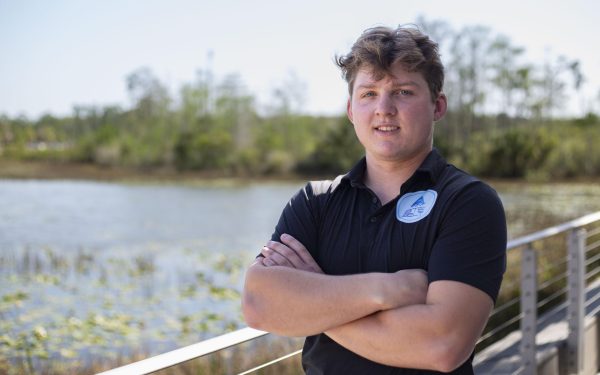Paving the way for women in STEM
Dr. Joanne Muller makes history as The Water School’s first full-time, female Professor.
September 23, 2022
Dr. Joanne Muller grew up in Queensland, Australia tracking cyclones with her dad. She always dreamt of being a scientist when she was older. In 2011, her passion for storm hunting followed her to FGCU where she took a position as an assistant professor at The Water School.
This fall, Dr. Muller was internally promoted to a full-time professor, making her the first full-time, female professor in The Water School and The Marine and Earth Sciences Department, according to an Instagram post from the university.
“Science is going to be better with diversity, and women tackle things differently,” Dr. Muller said. “Having both men and women at the table working on issues of science, things like climate change, I think that’s absolutely crucial. It’s also an issue of like environmental justice.”
Amanda Lewan, a 2021 FGCU Marine Sciences graduate, was a student in several of Dr. Muller’s classes.
“Women in STEM, in general, are directly correlated to climate change mitigation,” Lewan said. “Dr. Muller touched on that in one of her classes I was in. By opening up space for women, a lot more emphasis can be placed on life planning, and it literally doubles the amount of people who may have been interested in research prior.”
49.2% of women who originally intend to major in science and engineering as first-year students switch to a non-STEM major, compared to 32.5% of men, according to the National Center for Science and Engineering Statistics.
At FGCU, faculty are working to beat those numbers. The FGCU STEM Academy, established in 2016, improves students’ prospects by exposing them to careers in science, technology, engineering and mathematics.
“Obviously, staying in science as a woman is really important, and I’m going to be honest, it’s not been easy,” Dr. Muller said. “There’s been a lot of time periods during my career where I’ve thought about quitting.”
This fall, Dr. Muller teaches four different classes: Meteorology and Climatology, Current Topics in Southwest FL and Climate Change, Physical Geology, and Special Topics in Meteorology and Climatology.
Dr. Muller received her undergrad from the University of Technology Sydney and her master’s degree from James Cook University. She then spent half of her time at James Cook University and The Imperial College in London for her doctorate degree.
“I think she’s extremely approachable at any position within the faculty, and she’s always interested in hearing what people are working on and giving advice,” Lewan said.
As she enters a high-ranked role at the university, Dr. Muller hopes to make a change with her work.
“I find the students at FGCU to be extremely warm and generous with their time and really nice,” Dr. Muller said. “The department I’m in– it’s just really special. I think there’s not a single person that isn’t wonderful. We’re all a bunch of academics, so we’re all a bunch of weirdos but everyone is just super kind.”
Lili Barba graduated from FGCU in May with a degree in marine science and a double minor in climate change and geology. She took a class specializing in meteorology and climatology with Dr. Muller during her time at FGCU.
“She has always been super supportive of me and her other students and is someone who puts in a lot of care and love to her work,” Barba said. “I’m so glad I was able to learn from her during my time at FGCU, and I know she’ll continue to make that same impact on her students in the future.”
Barbara is now following in Dr. Muller’s footsteps and attending her alma mater, James Cook University as a graduate student.
“I think one of the main things that I’ve tried to do is just not quit and stay in the job so that women that are younger than me or more junior in their careers have at least someone to look at,” Dr. Muller said.
Dr. Muller identifies as a paleoclimatologist and studies past climate change and climate cycles. She is continuing her work with her dad as she still tracks storms, just ones that occurred in the past.
Currently, she is working with a group in London to analyze prehistoric hurricanes and transform the data to predict how future storms will impact the surrounding communities.







